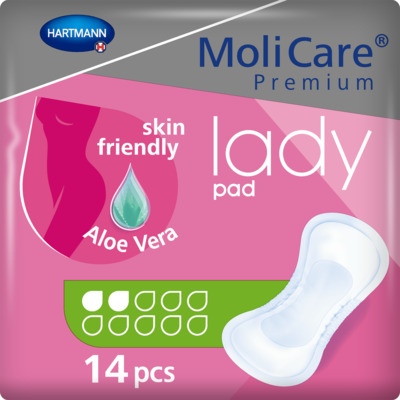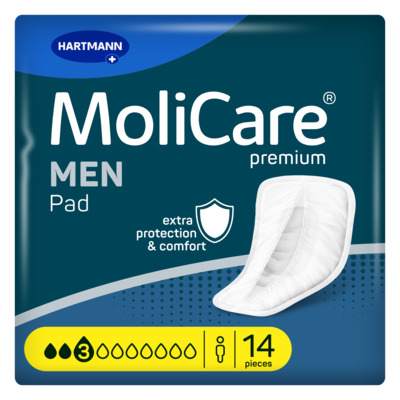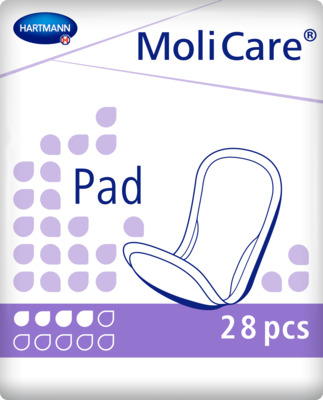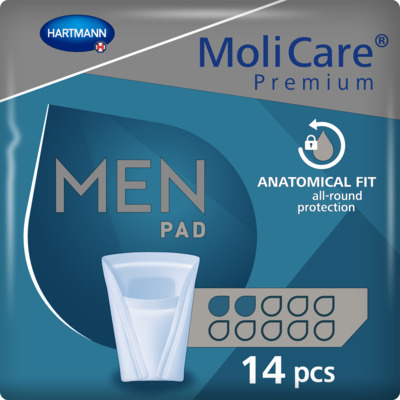Active living
Bladder-Cleansing Foods: How to Improve Your Bladder and Bowels
Your diet is an essential aspect of your everyday, active living, and the food and drink you put in your body can drastically affect your bladder and bowels, either positively or negatively. On average, we should consume at least five fruits and vegetables a day, as well as a plentiful source of protein, carbohydrates, natural fats, and fibre. But how do you identify the good from the bad? In this article, you will learn about the best foods to aid bladder and bowel health and improve their function. We'll cover key topics such as how your bladder functions, and ways to calm an irritated bladder.

Incontinence Skin Care Products
Make sure to browse our range of skin care products today for peace of mind and easy comfort
How Does the Bladder Work?
The bladder is shaped like an upside-down shaped pear, and is a vital component of your urinary tract system. It is truly a fascinating organ. The bladder is made of expandable tissue, and is essential for storing urine before it's time for it to leave your body. Its ability to stretch is remarkable – from about two inches to over six inches, depending on how much liquid it's holding.
Typically, your bladder can hold 300-600mls of urine, but the urge to urinate often comes when it's only about a quarter full. At this stage, your body signals your brain, letting you know it's time to head to the toilet. The process of urination involves a coordinated effort of both voluntary and involuntary muscles, guiding urine from the bladder, through the urethra, and out of your body.
Your bladder doesn't work alone; it collaborates closely with your kidneys. Together, they filter fluids and waste from your bloodstream, a process that culminates in the production of urine. A properly functioning bladder is crucial for this process. When it's not working as well as it should, various problems can arise.
Bladder cleansing foods - Improve bladder & bowel health
How Can Diet Affect an Overactive Bladder?
An overactive bladder (OAB) can be a challenging condition, with symptoms like frequent urges to urinate, bladder spasms, and urinary incontinence. But did you know that your diet can play a significant role in managing these symptoms?
Certain foods and drinks can provoke irritation in the bladder or urinary tract, intensifying OAB symptoms. For example, consuming too many fluids, especially if they’re carbonated, can lead to more frequent toilet visits. On the other hand, drinking too little isn't advisable either, as it can concentrate your urine, also irritating the bladder.
The key is finding the right balance. Consulting with your doctor or healthcare professional can help determine the ideal amount and timing of fluid intake, especially if you have OAB. Many people with this condition find it beneficial to limit their fluid intake before bedtime to reduce nighttime bathroom visits.
Remember: everybody is different, and what triggers OAB symptoms in one person may not have the same effect in another. Experimenting with various foods and beverages, and keeping a food diary, can be invaluable in identifying your dietary triggers and managing your symptoms more effectively
What are the Signs of an Irritated Bladder?
Recognising the signs of an irritated bladder is key to maintaining urinary health. Your body will often signal bladder distress through various symptoms. These may include:
Painful urination: Experiencing discomfort or pain during urination is a common indicator.
Burning sensation: A burning feeling while urinating can suggest bladder irritation.
Poor bladder control: Difficulty in controlling urine flow might be a sign of bladder issues.
Abdominal or bladder pain: Feeling pain or pressure in the abdomen or bladder area is another red flag.
Pelvic floor discomfort: Pain in the pelvic floor muscles or bladder muscles can also indicate bladder problems.
Urgency: The bladder may try to expel the fluid that is irritating it, leading to a sensation of urgency.
Frequency: An irritated bladder can cause the sensation of needing to pass urine more frequently. This may also include an increased need to urinate in the night.
It is important to gain advice from a healthcare professional for any persistent pain in the bladder.

Good Foods for the Bladder
Now that we have underlined the purpose and main function of the bladder, let’s see which foods are good for the bladder and can improve your wellbeing:
1. Bananas
Many fruits can be a powerhouse of potassium and fibre, and are essential for both regular bowel movements and a healthy urinary tract. Regular bowel movements prevent your intestines from enlarging, which otherwise can put pressure on your urinary tract and restrict urine flow. As a bonus, bananas are non-acidic, making them gentle on your bladder while offering balanced nutrition. Look to integrate at least one banana into your diet per day so that you can truly see the benefits of bananas.
2. Berries
Berries are a bladder-friendly choice, thanks to their low sugar and high antioxidant content. While cranberries are renowned for their general health benefits, (find out more on our guide about bladder-friendly drinks) other berries like strawberries, raspberries, and blueberries are also beneficial. Rich in vitamin C, they help ward off harmful bacteria in the bladder. Additionally, their high water content aids in flushing out the urinary system, helping prevent UTIs. Berries can be enjoyed alone or added to various dishes, from smoothies to salads.
For more information about whether cranberries are good for you, check out this article on how cranberries can help urinary tract infections.
3. Cruciferous Vegetables
Known for their cancer-fighting properties, cruciferous vegetables are great for bladder and bowel health. These vegetables include:
-
Arugula
-
Bok choy
-
Broccoli
-
Brussels sprouts
-
Cabbage
-
Cauliflower
-
Kale
-
Radish
-
Turnips
Packed with vitamins C, E, K, folate, and fibre, these vegetables support a healthy bladder. They can be consumed in various forms - roasted, raw, or blended into smoothies - offering flexibility and variety in your diet.
4. Eggs
Eggs are a great bladder cleansing food and can provide peace of mind for those concerned about bladder health. Eggs are among the least likely to cause bladder irritation, making them a safe and nutritious addition to any diet. Rich in protein, eggs are crucial for maintaining overall health and are particularly gentle on the bladder.
Whether scrambled, boiled, or poached, eggs can easily be added into daily meals (whether it's breakfast, lunch or dinner), and ensure that you get essential nutrients without the risk of bladder discomfort.
5. Garlic
Garlic is renowned for its natural antibiotic properties, and is another bladder cleansing food to consider on this list. Its historical use as a medicinal ingredient is well-documented, and it continues to be a popular choice for addressing a variety of health issues, including digestive problems, infections, and even fatigue. For bladder health, garlic is particularly beneficial.
Some studies suggest garlic may help to prevent urinary tract infections (UTIs) and maintain a healthy bladder. Whether it is used in cooking or taken as a supplement, garlic is an excellent addition to your diet. It can be incorporated into a multitude of dishes, enhancing flavours while boosting your health. However, be sure to mention to your doctor if you are taking garlic supplements, as they can interact with other medications and treatments.
6. Potatoes
Potatoes are another food that we shouldn’t neglect when considering the best foods that aid the bladder and bowels. Their versatility makes them a favourite in various cuisines, fitting perfectly into a bladder-friendly diet. With over 4,000 varieties worldwide, there's a potato for every palate, from the classic russet to the nutrient-rich sweet potato. These tubers are best for those looking to avoid bladder irritation. You can have your potatoes either baked, boiled, or mashed and see the benefit that they will bring to your bladder.
7. Lean Proteins
When it comes to proteins that are gentle on the bladder, lean options are the way to go. The foods listed below are ones you should always consider in your daily diet:
-
Low-fat chicken
-
Pork
-
Turkey
-
Beef
-
Fish
These proteins are best when prepared through steaming, broiling, or baking, as frying or cooking them in excessive oil can increase the risk of irritation. Incorporating these lean proteins into your diet ensures you get the necessary nutrients without compromising your bladder health.
8. Whole Grains
Whole grains are an excellent source of healthy carbohydrates that are easy on the bladder. Foods such as quinoa, rice, and oats are not only nutritious but also versatile, making them a great addition to any meal. Most breads, particularly those made from whole grains, are safe for those with bladder concerns. For those with gluten sensitivities or celiac disease, choose gluten-free options or consult with a healthcare professional for better alternatives.
Other Bladder-Cleansing Foods To Try
On this list, there are other vegetables available that can help to improve your bladder health. These include:
- Asparagus
- Broccoli
- Cucumbers
Kale
- Carrots
- Celery
- Lettuce
- Peppers
These vegetables not only provide essential nutrients but also support the urinary system.
As mentioned, fibre is also crucial to add to your diet as it helps prevent constipation, which, in turn, eases pressure on the bladder. Incorporate fibre-rich foods like lentils, beans, raspberries, artichokes, barley, bran, oats, and almonds into your diet to maintain regular bowel movements and support bladder health.
Proteins are fundamental to overall health too. Incorporate wholesome protein sources such as fish, chicken, tofu, and eggs into your meals. Protein is also good for your bones, and no matter what health condition you have, consuming bone building foods can help improve your wellbeing.
Reducing Foods That Cause An Overactive Or Irritated Bladder
Certain foods and drinks can provoke overactive bladder (OAB) symptoms, leading to increased frequency of urination. To manage OAB, consider reducing intake of carbonated beverages, caffeinated drinks, chocolate, alcohol, sports drinks, citrus fruits, tomatoes and tomato-based products, spicy foods, and foods with artificial flavourings, preservatives, sugars, or sweeteners. Honey and raw onion are also known to irritate the bladder.
Keep A Food Diary
Taking note of your daily meals in a food diary is a good way for your doctor to highlight what may or may not be benefiting you.
How To Calm An Overactive Bladder Naturally
Managing an irritated bladder naturally involves more than just dietary adjustments. Consult with a healthcare provider to understand your specific nutritional needs and to determine if supplements like vitamin D and calcium could be beneficial for you. Always discuss with your doctor before starting any new supplements or medications to ensure they do not interfere with your current health regimen or prescriptions.
Bladder training and pelvic floor exercises like Kegels can also be effective in improving bladder control. Over-the-counter medications may offer relief by relaxing bladder muscles, providing more control over urination.
With the right dietary and lifestyle changes, managing an overactive bladder can become more manageable. Be sure to also check out our detailed article on healthcare tips for men to ensure that you feel your best in all circumstances and scenarios.

FAQs
What foods help to clear your bladder?
Foods that have diuretic properties, like watermelon, celery, and cucumber, can help promote urination and clear the bladder.
How can I flush out my bladder naturally?
Drinking plenty of water, avoiding irritants like caffeine and alcohol, and consuming foods rich in antioxidants can support natural bladder health.
What foods heal the bladder lining?
Foods like berries, broccoli, and oats may help promote bladder lining health due to their anti-inflammatory and antioxidant properties.
What clears your bladder?
Drinking water and other fluids help clear the bladder by flushing out waste and toxins through urination.
Sources
Williams, J., (2023) Top 5 health benefits of bananas. BBC Good Food. [online] Available at: https://www.bbcgoodfood.com/howto/guide/health-benefits-bananas [accessed 15/12/23]
Bedosky, L., (2023) The 7 Best Bone-Building Foods. Everyday Health. [online] Available at: https://www.everydayhealth.com/diet-nutrition/7-best-bone-building-foods/ [accessed 15/12/23]

MoliCare® Premium Lady Pad 2 Drops
<h2>Skin Friendly Pant Liners</h2> <p>For women that experience slight incontinence and bladder weakness, across different age groups, it can be a challenge to find the right bladder weakness product that is easy to apply and wear without the worry of potential leakages. Fortunately, we understand this approach, hence why we are happy to offer our MoliCare® Premium Lady Pad 2 drops, that is skin-friendly, Aloe Vera applied, and comes with 14 liners per bag.</p> <h2>Slim and discreet liners</h2> <p>Whether dealing with stress incontinence or urge incontinence, these panty liners offer a discreet and easy solution on the go. Simply place the pad in your underwear and secure it with the adhesive strip for all-round protection. Available in different absorbency levels, MoliCare® bladder weakness products cater to all levels of bladder weakness, ensuring secure care.</p> <h2>Control Bladder Weakness</h2> <p>Enjoy the benefits of these body-shaped absorbent panty liners, designed for women with bladder weakness. The pads offer discreet, reliable protection with features including odour control and fast absorption.</p> <p>With a wide adhesive strip, you can comfortably fix the pad in your regular underwear, providing secure and comfortable fixation. The pads are skin-friendly, featuring soft, breathable materials, including foam cuffs, and a top sheet treated with Aloe Vera.</p> <p>Keeping your skin healthy is a priority, which is why MoliCare® Premium Lady Pads have a skin-neutral pH value of 5.5 and an antibacterial finish. They are also dermatologically tested, offering peace of mind.</p> <h2>Buy pant liners online</h2> <p>Never worry about running out with our convenient order service and fast delivery direct to your door. Enjoy free shipping on orders over £50.</p> <p>If you need assistance, our professional customer service team is here to support you in choosing the right product. Reach out to us today at 0800 028 9470 and experience the comfort and reliability of MoliCare® Premium Lady Pads.</p>
MoliCare® Premium Men Pad 3 Drops (ISO 441ml)
<p><strong>Reliable and discreet incontinence pads for men with an instant-dry feeling</strong></p> <p>Bladder weakness is difficult to live with, the last thing you want to worry about is incontinence protection. That’s why our best-ever MoliCare® premium MEN Pad 3 drops offer an <strong>all-round protection</strong> that keeps everything dry and comfortably in place while fitting discreetly in your regular underwear.</p> <p>The incontinence pad for men quickly <strong>removes urine from the surface up to 86 %* faster than before</strong> and neutralises unpleasant odours to leave you feeling instantly dry and in control thanks to the new <strong>MoliCare SkinGuard</strong>®<strong> Absorbent Core Technology</strong>. This skin-friendly technology not only helps you feel up to 90 %* drier than previous MoliCare® premium<strong> </strong>MEN pads, it also helps to maintain healthy skin and preventing irritation.</p> <p><strong>Engineered for the male anatomy</strong> and dermatologically tested for maximum skin compatibility, these male urinary pads do not contain colour, perfume or latex making them environmentally friendly too.</p> <p>*Compared to last generation</p>
MoliCare® Pad 4 Drops
<h2>Handy MoliCare incontinence pads to carry on the go</h2> <p>Our MoliCare® Pad 4 Drops are an essential product for those experiencing slight incontinence, allowing you to regain control and live your busy and active life without the interference of bladder weakness. Designed for both men and women, this incontinence pad for men and women offers exceptional dryness and protection, ensuring your comfort and confidence.</p> <h2>‘Barely There’ Reassurance and Reliability</h2> <p>The MoliCare® Pad 4 Drops are slimline, discreet, and adjusted to fit your body seamlessly. It fixes securely inside your underwear, providing a ‘barely there’ comfort feel. With its soft and skin-kind fabric, along with a wide adhesive fixing strip on the backsheet, you can go about your day with the assurance of being protected against leakages.</p> <p>The absorbent core effectively prevents your skin from becoming too moist, while the elastic anti-leak edging adds an extra layer of security and peace of mind. Say goodbye to any worries about odours, as the MoliCare® Pad 4 Drops also neutralises odours to keep you fresh and confident throughout the day. Don't let incontinence hold you back from living life to the fullest.</p> <p>Ordering your MoliCare® Pad 4 Drops is hassle-free, as we offer fast delivery direct to your door. With our price match promise, you can trust that you're getting the best value for your money. Plus, enjoy free delivery on all orders over £50.</p> <p>If you need assistance in finding the perfect incontinence product for your needs, our friendly customer care team is here to help. Don't hesitate to reach out to us at 0800 028 9470. Take control of your life with the reliable protection and comfort of the MoliCare® Pad, alongside other <a href="https://www.hartmanndirect.co.uk/incontinence-products/incontinence-pads" style="color:#0563c1; text-decoration:underline">incontinence pads</a>.</p>
